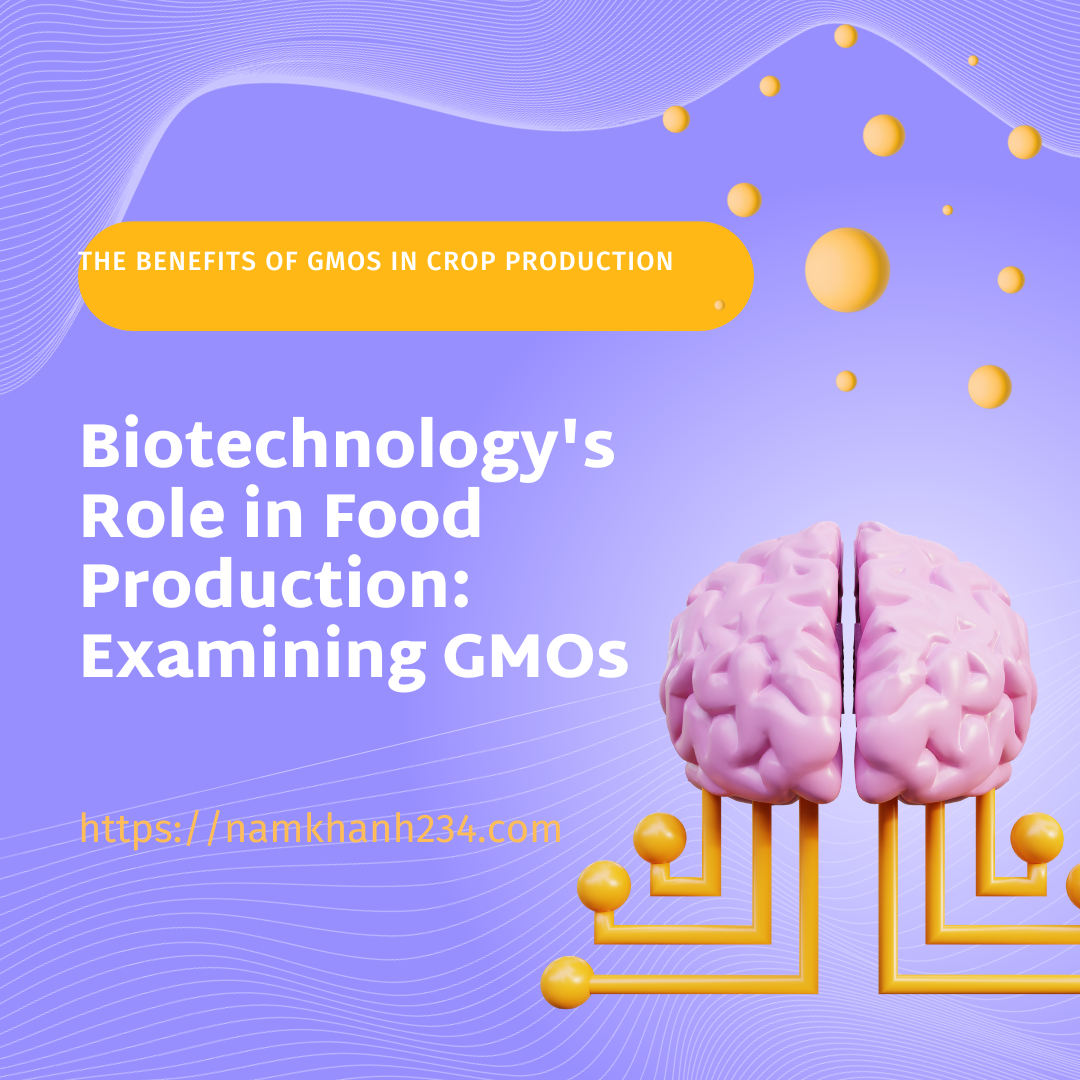
Biotechnology has become a linchpin in modern food production, particularly through the development and use of Genetically Modified Organisms (GMOs). This technological advancement in agriculture is reshaping how we grow, process, and think about our food.
Understanding GMOs in Agriculture
GMOs are organisms whose genetic material has been altered using genetic engineering techniques. In agriculture, this technology is used to enhance crop resilience, increase yield, and provide resistance to pests and diseases. GMOs have been pivotal in meeting the growing global food demand, offering solutions to many of the challenges faced by traditional farming methods.
The Benefits of GMOs in Crop Production
One of the most significant benefits of GMOs is their contribution to increased agricultural productivity. By making crops more resistant to environmental stresses, pests, and diseases, GMOs help in producing larger yields on the same amount of land. This is crucial in feeding the ever-growing global population.
Nutritional Enhancement through Biotechnology
Beyond increasing yields, biotechnology has been used to enhance the nutritional content of crops. Biofortification, the process of increasing the density of vitamins and minerals in crops through biotechnological methods, is a significant step in addressing nutritional deficiencies in many parts of the world.
Sustainability and GMOs
GMOs also play a role in sustainable agriculture. Crops engineered to use water more efficiently and to thrive in harsh environmental conditions contribute to the conservation of resources. Additionally, pest-resistant GMO crops require fewer pesticides, reducing the environmental impact of crop production.
Debates and Safety of GMOs
The use of GMOs in food production is not without controversy. Debates over food safety, environmental impact, and ethical considerations continue to surround GMOs. However, numerous scientific studies have confirmed the safety of GMO foods, and regulatory bodies worldwide rigorously assess these products before they reach the market.
Future of GMOs and Biotech Innovations
Looking to the future, biotechnology is set to play an even more significant role in food production. Advances in genetic engineering, including CRISPR technology, promise more precise and varied modifications to crops. These innovations have the potential to further increase food security, nutritional quality, and sustainability in agriculture.
Addressing Environmental Concerns with Biotech Crops
Environmental sustainability is a key concern in modern agriculture, and biotechnology offers solutions to some of these challenges. GMO crops engineered for reduced reliance on chemical inputs can lead to a lower environmental footprint of farming. Biotech crops that require less tillage, for instance, help in soil conservation and reduce greenhouse gas emissions.
Enhancing Food Security with GMOs
GMOs play a critical role in enhancing global food security. By developing crops that are more resilient to climate change – including tolerance to drought, heat, and salinity – biotechnology is helping secure food sources in regions most vulnerable to climate extremes. This is essential for ensuring a steady food supply as global climate patterns continue to shift.
Consumer Acceptance and Education
A significant aspect of GMOs in food production is consumer acceptance. Misconceptions and misinformation about GMOs can influence public opinion. Therefore, educating consumers about the scientific basis, safety, and benefits of GMOs is crucial. Transparent labeling and communication strategies are also important in building trust and informed choice among consumers.
Ethical Considerations in GMO Usage
The use of GMOs also brings up ethical considerations. Issues such as patenting of genetic modifications, control over seed supply by large corporations, and the impact on small-scale farmers are important discussions in the realm of biotech crops. Addressing these ethical questions is crucial for the responsible development and use of GMOs.
Biotechnology and the Future of Food Diversity
Biotechnology holds the potential not only to improve existing crops but also to bring back or create new varieties of crops. This can lead to increased food diversity, offering a range of nutritional and culinary choices. Such innovations could also contribute to the preservation of biodiversity in agriculture.
Collaboration for Sustainable Biotech Solutions
The future advancements in GMOs and biotechnology in food production will likely come from collaborative efforts. Partnerships between scientists, farmers, policymakers, and industry stakeholders are essential for developing sustainable and effective biotech solutions that are aligned with societal needs and environmental preservation.
Conclusion
Biotechnology’s influence on food production, especially through the development of GMOs, represents a critical intersection of science, agriculture, and society. As biotechnology continues to advance, its potential to transform food production systems grows, promising a future of enhanced food security, sustainability, and diversity. Embracing the benefits of this technology, while addressing the challenges and concerns, is key to harnessing its full potential for a better food future.